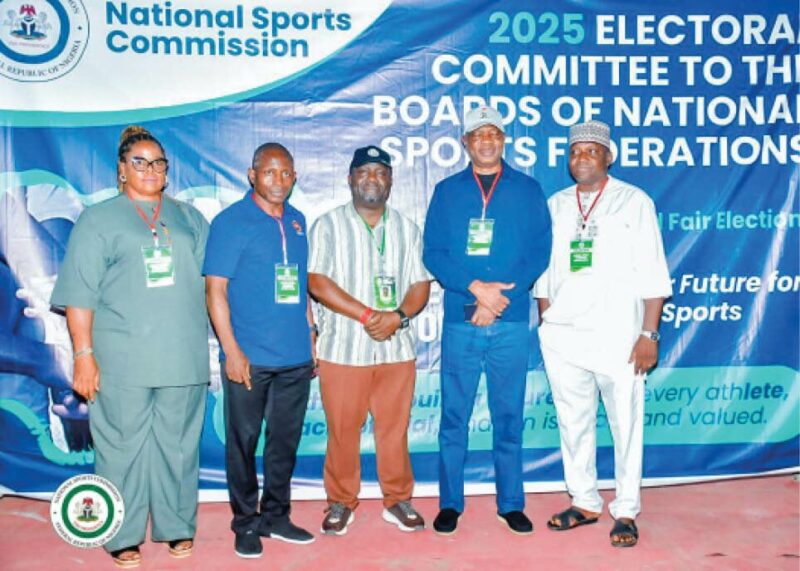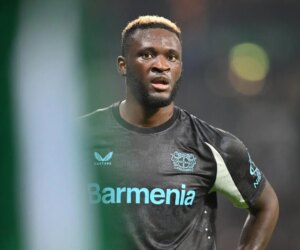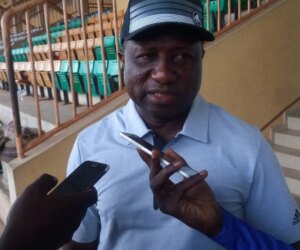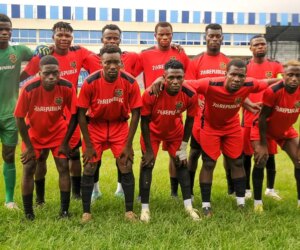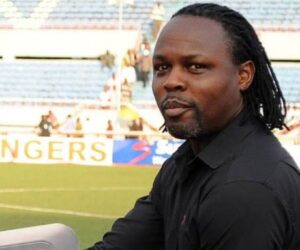With the elections of new National Sports Federations Boards elections, a new vision for sports governance is taking shape in Nigeria. As fresh leaders step into their roles, the National Sports Commission (NSC) is positioned to navigate a transformative era for Nigerian athletics.
The newly elected presidents, including the finance and coordinating economic minister Mr. Wale Edun of the Nigerian Boxing Federation, Comptroller General of Nigerian Customs Service Bashir Adewale Adeniyi of the Nigeria Wrestling Federation, Senator Ibrahim Dankwambo, and others bring a wealth of experience and innovative ideas. Their leadership will be crucial in fostering local talent, enhancing athlete support systems, and setting ambitious goals for international competition.
As these federations embark on this challenging journey, the focus will be on uniting efforts to elevate Nigerian sports to new heights. At the heart of these developments lie fundamental issues that the new sports federation presidents must address: grassroots development, athlete welfare, and the pursuit of success on the global stage.
A Visionary Shift in Leadership
The elections have ushered in a cohort of leaders with extensive experience across multiple sectors. They are not only adept in sports administration but also have demonstrated prowess in governance, business, and public service. This unique blend of skills is essential as they tackle the multifaceted challenges facing Nigerian sports.
Prominent among the newly elected leaders is Mr. Wale Edun, the newly elected president of the Nigerian Boxing Federation. A distinguished figure in finance and a passionate advocate for youth empowerment, Edun’s presidency signals a potential revitalization of boxing in Nigeria, focusing on harnessing local talent and creating pathways for boxers to succeed on international stages.
Equally significant is Bashir Adewale Adeniyi, the new president of the Nigeria Wrestling Federation. His leadership is expected to embed principles of discipline and structured development into the federation’s programmes, with an eye towards nurturing future Olympic champions.
Alhaji Ibrahim Dankwambo’s presidency at the Nigeria Chess Federation presents an opportunity to elevate chess as a discipline in Nigeria—a sport that teaches critical thinking, strategy, and is an essential part of intellectual development for youth.
With each leader bringing their distinctive vision and expertise, there’s an overarching need for a unified effort towards the common goals of grassroots enhancement, athlete welfare, and global competitiveness.
Grassroots Development
For Nigerian sports to flourish, an unwavering focus on grassroots development must be embraced by all federations. Grassroots development refers to nurturing talent at the local level—identifying young athletes with potential, providing them with quality coaching, and ensuring they have the infrastructure and resources necessary to excel. This is not merely about elite performance; it is about creating a sustainable ecosystem that supports sports at all levels.
The groundwork for this must begin in schools and community sports clubs. New presidents must collaborate with educational institutions to incorporate sports into the curricula. For instance, Simon Nkom, re-elected president of the Nigeria Hockey Federation, has articulated ambitious plans to establish regional hockey academies. Such initiatives can serve as a model for other federations to create structured training grounds that cultivate young athletes’ talents while ensuring inclusivity across gender and socio-economic barriers.
Furthermore, engaging local communities can enhance participation rates and foster a culture of sportsmanship. Federations should invest in outreach programmes that introduce various sports to youths in underserved areas, motivating them to aspire to sporting greatness. The key is to mobilize local champions—individuals who can engage and inspire aspiring athletes in their communities.
To truly harness the potential of grassroots sports, federations will also need to invest in infrastructure. Facilities can serve as the foundation upon which young athletes build their skills. Dr. Dunkwu Chamberlain Nnamdi, the new president of the Nigeria Aquatic Federation, has pledged to focus resources on developing aquatic facilities that will enable comprehensive training, particularly for talents from riverine communities.
Athlete Welfare
While grassroots development is the foundation of sports, the welfare of athletes must remain a primary concern. As sports federations evolve, creating an environment that prioritizes the physical and mental well-being of athletes is critical. This includes ensuring access to quality medical care, psychological support, and nutritional guidance.
One of the foremost tasks for the new leadership will be to create comprehensive welfare programmes. The athletes, often ambassadors of national pride, should receive the necessary support systems to thrive both in their sports and personal lives. The leadership needs to initiate policies that address these needs, and work with government agencies and private sectors to facilitate these services.
The new president of the Shooting Federation, Commodore Mohammed Shettima (rtd), has already highlighted the importance of accountability and institutional reform within his federation, which can serve as a blueprint for others. A strong governance structure will ensure that athletes receive justified support and the federation is held accountable for their well-being.
Moreover, athlete welfare extends to safeguarding their rights. As they represent their nations on global stages, it is vital that athletes have a clear understanding of their entitlements, including sponsorship, remuneration for their participation, and avenues for grievance redressal. Training workshops and consultations can assist athletes in navigating these complex aspects, ensuring they are empowered representatives of their respective sports.
Podium Finish: Setting Global Standards
As the world of sports continues to evolve, the expectation for Nigerian athletes to perform excellently on the global stage is growing. Achieving podium finishes at international competitions will require strategic planning and collaboration among the federations. The new leadership must set progressive targets and implement rigorous training programmes aimed at preparing athletes for competitions such as the Olympics, Commonwealth Games, and world championships.
Each federation should formulate a clear plan that emphasises talent identification, training excellence, and international competition exposure. The success story of Nigerian athletes in various sports can attract sponsorship and increase interest and investments in the respective disciplines.
The Nigerian boxing establishment under Edun’s leadership, for instance, could leverage his experience to establish training camps that mirror successful international training regimes. Importantly, participation in international competitions in the lead-up to major events can provide crucial exposure. This strategy must extend across all federations, integrating advanced training methodologies and international best practices.
Moreover, building robust partnerships with international federations can enhance Nigeria’s sports profile abroad while offering local athletes valuable learning experiences. Collaborating with renowned coaches and sports scientists from around the world can bridge the gap between local practices and international standards, ultimately equipping Nigerian athletes with the skills needed to compete and excel on a global scale.
Investment in Sports Science and Technology
Additionally, the new sports leadership must advocate for the incorporation of sports science and technology into training regimens. This includes utilising data analytics to track and analyse performance, enhancing injury prevention protocols, and developing tailored conditioning programmes suited to the unique needs of individual athletes. Federations should look towards establishing partnerships with universities and research institutions to stay abreast of advancements in sports health and performance optimization.
For example, in sports like athletics and swimming, where milliseconds often determine outcomes, leveraging technology can provide athletes with an edge in terms of training efficiency and performance metrics. This would not only enhance the athletes’ preparation but also foster a culture of innovation and advancement within Nigerian sports.
Community Engagement and Sponsorship Opportunities
Another aspect that the new leadership needs to focus on is community engagement and sponsorship opportunities. The symbiotic relationship between sports federations and private-sector sponsors is crucial for creating sustainable funding channels. By establishing clear engagement strategies that highlight the benefits of sponsoring sports, federations can attract investment that does not only help in funding but also in promotional activities to boost the sport’s visibility.
Regular community events, outreach programmes, and school championships can serve as platforms for showcasing local talents, providing sponsors with visibility while integrating supportive networks that sustain grassroots initiatives. The Nigeria Cricket Federation under Uyi Akpata, for instance, could implement robust community cricket festivals that encourage participation, draw media attention, and attract potential sponsors.
The Role of Governance in Enhancing Sports Development
An essential part of addressing the tasks laid before the new leaders involves strengthening governance structures within each federation. The effective governance plays a pivotal role in ensuring the transparency, accountability, and operational efficiency of sports federations. With a more robust governance framework, federations can establish clear lines of accountability, and detailed performance monitoring mechanisms that can track progress on set targets.
The incorporation of stakeholders’ feedback in decision-making processes, fostering an inclusive culture within federations, and incorporating best practices from global standards will create a sustainable model for governance in Nigerian sports. The leadership of the NSC must provide continuous training and support for federation leaders to help them adapt to these governance models effectively.
Mentorship and Role Modelling
In motivating the next generation of athletes, the new presidents should also prioritise mentorship programmes that encourage seasoned athletes to engage with young sports enthusiasts. Role modelling through mentorship can provide invaluable insights and guidance to aspiring athletes on navigating the complexities of professional sports, fostering resilience, discipline, and ambition.
Mentoring can take different forms—from formalised training sessions, where veterans share experiences and strategies, to informal gatherings that build community spirit within sports. Such initiatives can stimulate a culture of giving back to the sport, which is essential for creating legacy and sustainability within sporting disciplines.
Embracing the Journey Ahead
The journey ahead for the newly elected sports federation presidents in Nigeria is laden with both challenges and opportunities. Their collective responsibility goes beyond management; they are custodians of the future of sports in the country. By prioritising grassroots development, athlete welfare, and striving for excellence on the international stage, they have the potential to transform Nigerian sports for generations to come.
Milestones will not come easily, and each federation must remain steadfast in promoting the spirit of collaboration, dedication, and accountability. Through innovative practices, engaging communities, optimising athlete welfare, and integrating education with sports at all levels, Nigeria can emerge as a formidable contender in the global sports arena.
As they embark on this significant journey, the new leaders must remember that the true essence of sports transcends the medals and accolades; it lies in its power to unite people, create shared experiences, and inspire future generations. By harnessing this ethos, they can forge a brighter future for Nigerian sports, making it a beacon of hope, resilience, and excellence in the global sporting landscap.

